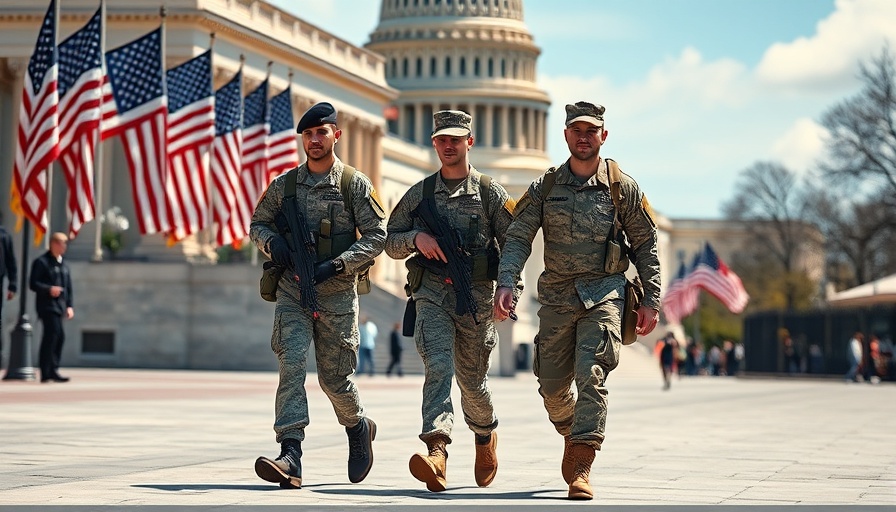
Legal Challenge to Federal Authority in D.C.
The District of Columbia has initiated a legal battle against the Trump administration, contesting the president's decision to deploy National Guard troops in the city. This action follows a significant deployment that involved thousands of Guard members and federal law enforcement officials, justified by the president as a necessity for addressing a "public safety emergency." Critics argue that this move not only undermines the district's limited self-governance but also serves as a political tactic against Democratic leadership.
Public Safety or Political Maneuvering?
As the lawsuit unfolds, many residents express concerns that the federal presence, initially framed as a response to violence and disorder, is being utilized to suppress local governance and target cities with Democratic mayors, such as Baltimore and Chicago. This situation raises questions about the intersection of public safety measures and political motivations, particularly in the context of the upcoming elections. The implications extend beyond D.C., potentially affecting similar cities across the nation.
A Historical Perspective on Federal Power
This case calls to mind historical precedents involving federal intervention in local affairs, most notably during the Civil Rights Movement. In those turbulent times, federal troops were deployed to enforce desegregation and maintain order in states resistant to federal authority. Today, though the context differs, the underlying tensions regarding state versus federal power remain pronounced. How this legal battle is resolved could set important precedents for future interactions between the federal government and local jurisdictions.
Impacts on Local Governance and Democracy
At the heart of this legal challenge lies the concept of self-governance. D.C. residents have limited representation in Congress and are fighting to safeguard their autonomy against federal overreach. This lawsuit is emblematic of a broader struggle faced by urban areas nationwide, where local leaders often perceive federal interventions as undermining their authority. The outcome could redefine the balance of power and influence local governance in other major cities.
Future Implications for National Security Policy
As the Trump administration continues to deploy troops across various cities, including proposals for additional intervention in Baltimore and Chicago, the implications for national security policy are significant. This approach raises debates over militarization in domestic law enforcement, with potential long-term ramifications for civilian-military relations. As national discourse evolves, citizens must consider the potential impacts on civil liberties and community relations with police and military forces.
What Can Residents Do?
For citizens concerned about this situation, staying informed and actively participating in civic discussions is crucial. Engaging with local leaders, attending town halls, and utilizing platforms for advocacy can empower residents to voice their opinions. Moreover, demanding transparency and accountability from elected officials becomes essential as the legal proceedings progress.
The complexities of this national controversy underscore the importance of civic engagement in shaping policies that directly affect communities. As this lawsuit unfolds, it serves as a poignant reminder of the delicate balance between ensuring public safety and preserving democratic principles.
In a time of significant political tension, understanding these developments can help residents navigate the changing landscape of governance and rights in America.
 Add Element
Add Element  Add Row
Add Row 



Write A Comment